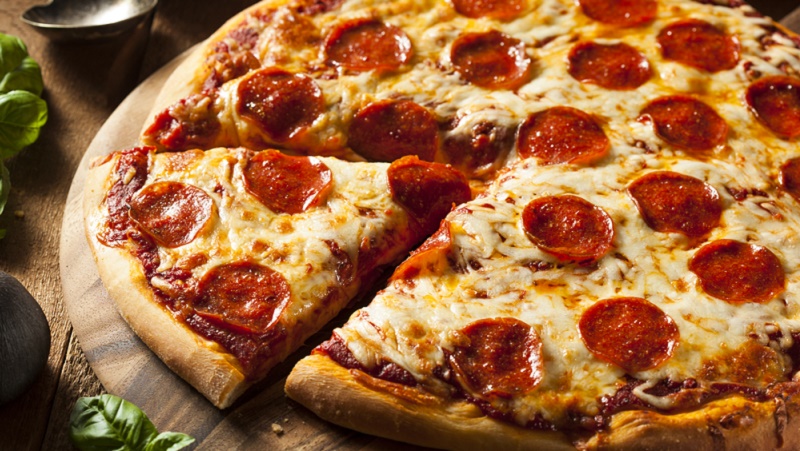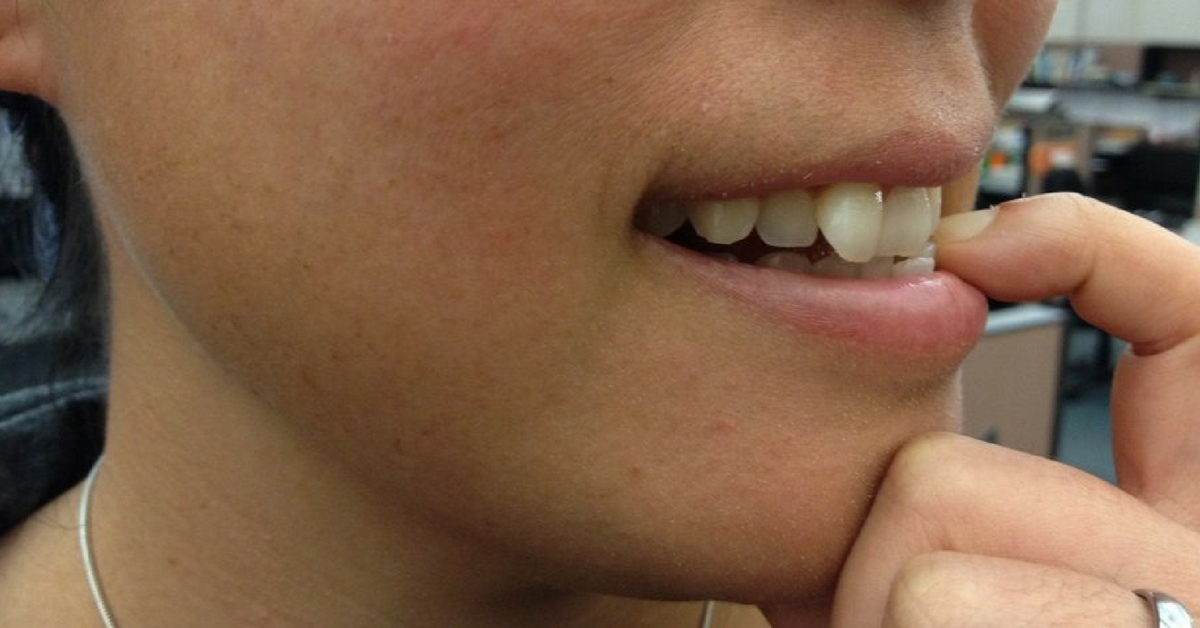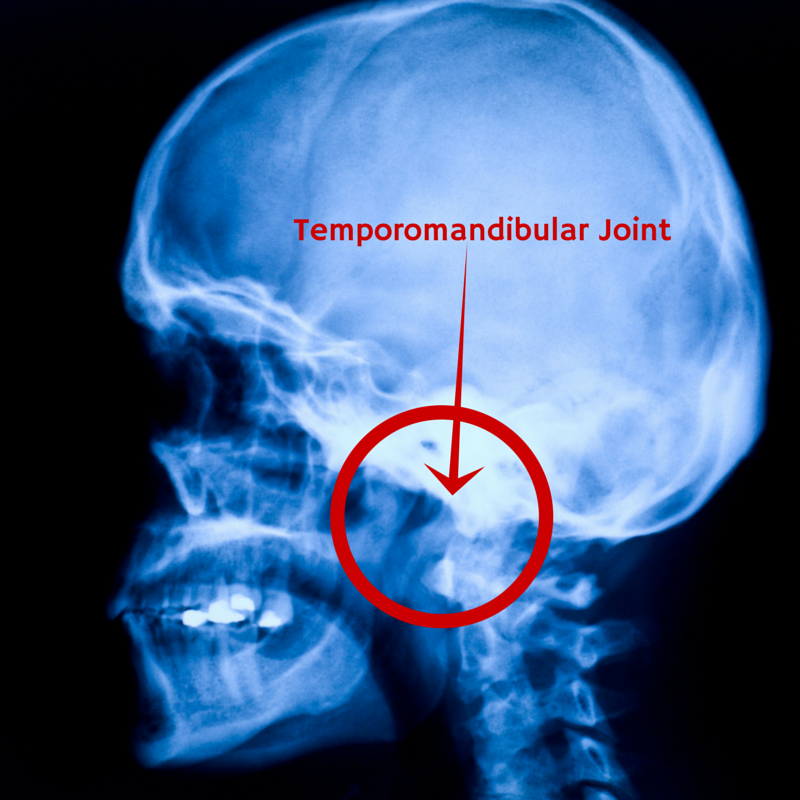So you're eating an apple or some chips, and then all of a sudden you crunch on something that is not your food. Whether it's your lip or your cheeks, it hurts like hell. It's not like we forget how to chew, so what's going on when you bite your lip or cheek?
There are a couple different reasons as to why this happens, so let's get started!
Dehydration
As you chew, your teeth are rubbing up and down against your lips and cheeks. As humans evolved, we developed methods to stop ourselves from biting our tongues, lips, and cheeks, and one of those methods is saliva. Natural lubrication is produced to help your teeth easily slide up and down the inside of your mouth.
However, oily and dry foods can suck the moisture from your mouth and cause a higher chance of biting down on something you didn't want to. Bread is inherently dry and absorbs a lot of moisture, so it forces your mouth to produce saliva in overdrive. Oily foods, like pizza, are hydrophobic, meaning it essentially repels water.

You can prevent dry mouth by drinking water before you eat a dry or oily meal, and also avoiding these types of food if you find yourself biting the inside of your mouth too often.
But lack of moisture is not the only reason people bite their lips and cheeks.
Careless Chewing
Thomas P. Connelly, D.D.S., says the most common cause of cheek and lip biting is careless chewing.
"It's when you're chewing and usually trying to do something else "” talking, reaching for something, reading etc. Talking is really the biggest culprit here," he says.
Dr. Connelly says there's a simple solution: slow down and pay attention. Even though chewing is like breathing (our bodies just know how to do it), it doesn't hurt stop multi-tasking when you're eating.
Misaligned Teeth
Yes, there could absolutely be a medical cause behind your constant mouth wounds. Misaligned teeth can lead to Temporomandibular Joint Disorder (TSJ), which can lead to other health issues.
"When your teeth are misaligned, they do not close together properly," writes Dr. Connelly. "Our brains realize this, and sometimes look to "correct" this misalignment by putting something in between them. And what is available to put in there? You guessed it "” the insides of your cheek/lips. So if you find yourself constantly putting your cheek/lips in between your teeth, misalignment could be the reason."
TMJ doesn't just mean a nip here or there, either. It can lead to a bigger problem.
"In some people, misaligned teeth can create a psychological dependency in terms of biting one's cheek," cautions Dr. Connelly. "This is where chronic cheek biting starts."
Nervous Disorder
Some of us bite our nails, others tap our foot, but some people bite their cheeks as a nervous habit. It can be used as a coping mechanism or just a bad habit, but cheek biting and lip biting are not as harmless as they may seem.
Why should you be concerned when you bite your lips or cheeks?
Cause for Concern
When you bite your lip, it creates an avenue for bacteria to enter the body.
"If you have been eating or drinking, wash out your mouth with clean water or a saltwater solution," says Dr. Jason Menayan. "Make sure the wound is clean and free of any debris. Until the wound heals completely, you may want to rinse your mouth after every meal."
But don't think you have to see a doctor every time you bite your lip. Your body is pretty good at healing.
"While the mouth tends to heal quickly if wounds are kept clean and not aggravated, healing times depend," continues Dr. Menayan. "A small bite wound can heal within 2-3 days; a larger one in about a week."
When To See A Doctor
If you experience any of these symptoms, consult a doctor immediately:
- The pain doesn't subside within 24 hours
- You notice any strange odors coming from the wound
- You develop a fever
- The bite resists healing or continues to feel warm from the inflammation more than 48 hours later
- You notice an abnormal amount of bleeding



